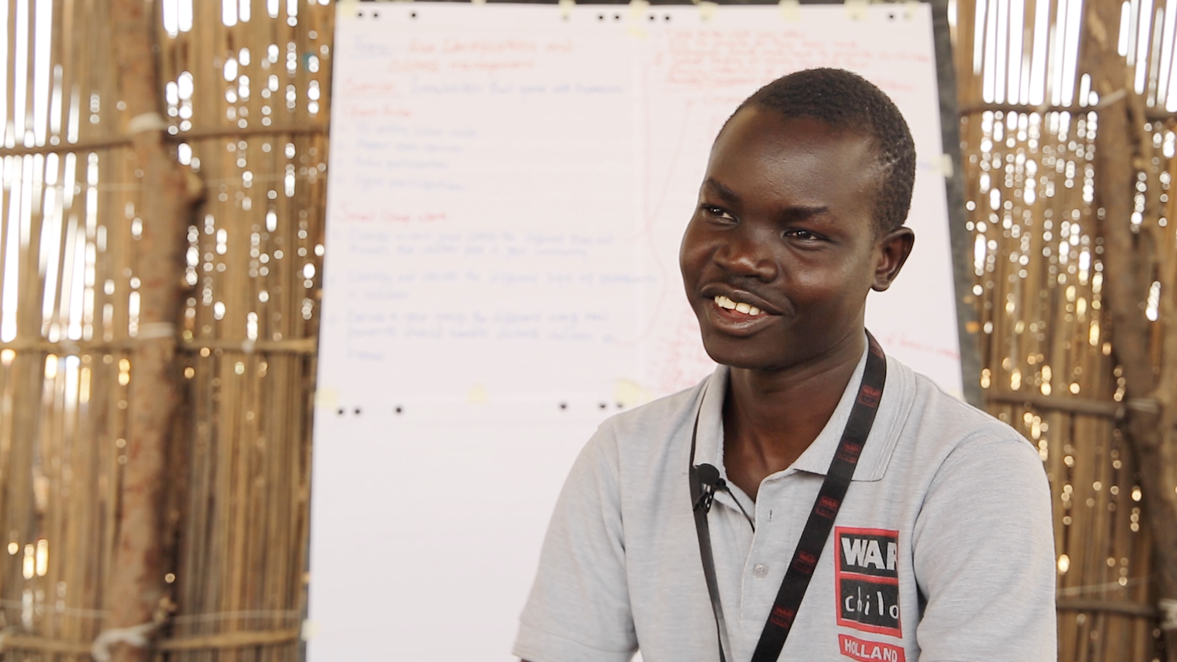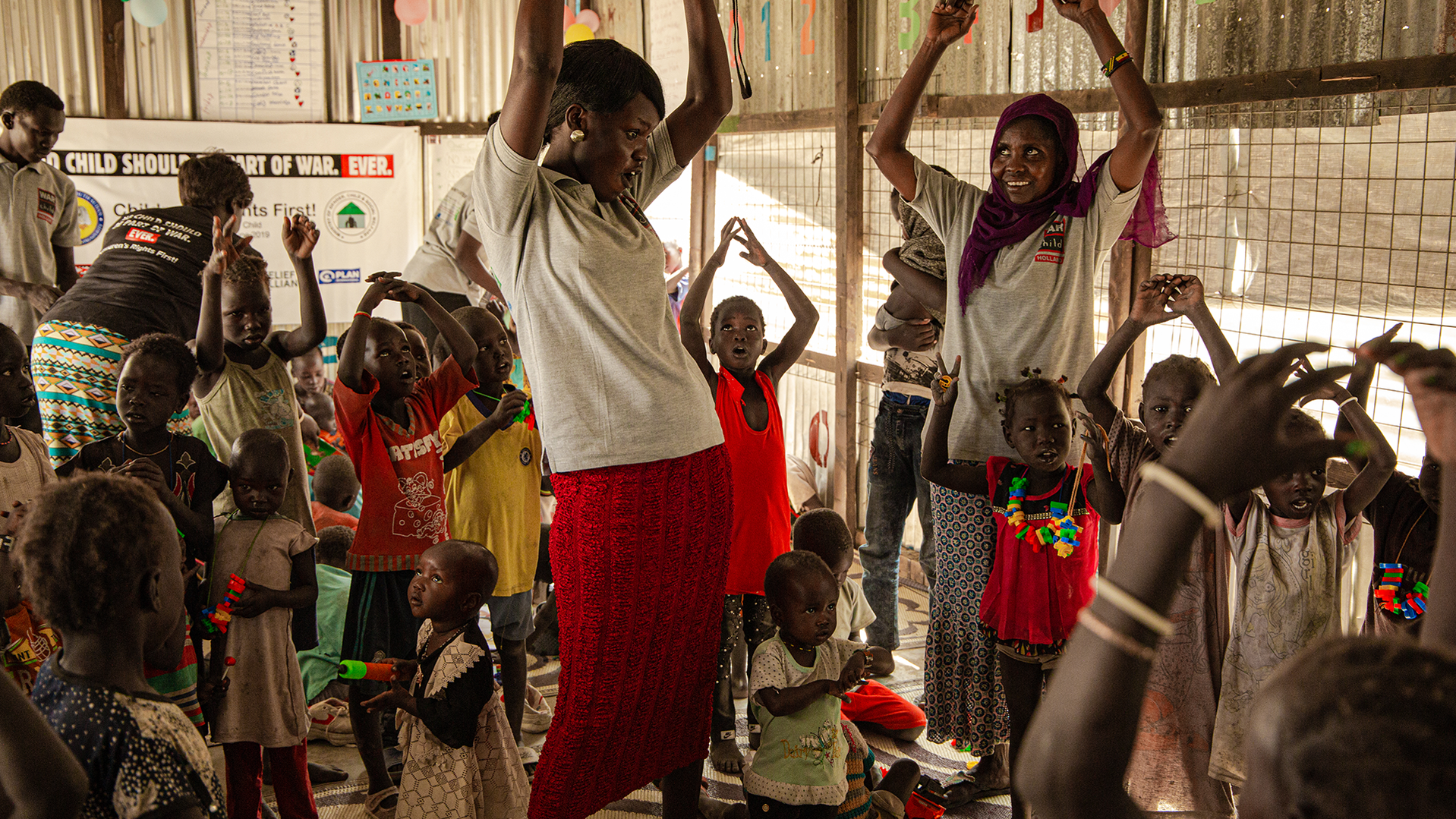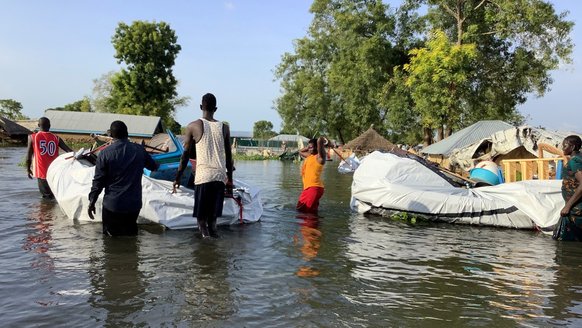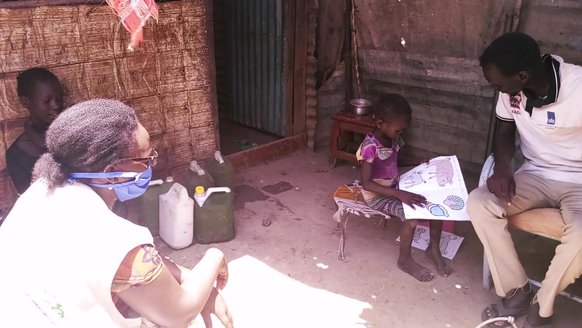"Food, Water and Shelter Can Only Go So Far”
Aug. 19, 2021

Mental Health Treatment Gap
In South Sudan, the impact of the mental health treatment gap is all too evident. Years of violence and armed conflict have left thousands of young people battling depression, anxiety and other serious conditions. Yet, especially in rural communities - where few services exist and mental health is regularly attached to stigma - most suffer in silence.
Across the country, more than five million children remain displaced and are at high risk of recruitment, abuse, exploitation, neglect and death - further impinging on their right to a healthy mind.

Psychosocial support takes many forms, but it all links back to helping children process painful emotions
Photo: War Child
The Impact of War and Flight
Having fled the crisis in Tonga when he was just 8-years-old; making the journey to north Sudan in the back of a truck, Fasco Obiel, a project officer for War Child, knows this reality all too well. His experiences of war and flight didn’t simply evaporate when he crossed the border. And instead of continuing his education, Obiel had to stay home to care for his younger siblings while his mum went out to work.
All this, he explains, took a huge toll on his sense of worth and purpose. “Not going to school was very hard”, he says. “At first, I felt self-conscious because I couldn’t overcome my situation. Then, I became extremely sad.”
Psychosocial Support First
Looking back, Obiel wishes he’d known some of what he knows now. “At that time, talking about your feelings; your mental struggles just didn’t happen”, he says. “Thankfully, my mother saw that I was suffering and sent me back to Malakal to stay with my uncle and continue my studies - after the 2005 peace agreement. Not all children are as lucky.”
As a War Child field worker, Obiel hasn’t only learned about the importance of a supportive home environment, he’s also acutely aware of the need for psychosocial support to become a permanent feature of international aid responses. Obiel: “If a child’s mental health is suffering, food, water and shelter can only go so far. They might reach a classroom, but how can they concentrate on learning when their head is filled with war?”
Building the Capacity of Frontline Workers
By training frontline humanitarian workers, just like Obiel, to provide vital psychosocial support to children - alongside our education and protection programmes - our aim is to catch mental health problems early and prevent them from developing into lifelong illnesses. Building this capacity is absolutely critical considering the shortage of mental healthcare staff globally. Take Africa where the number of trained professionals is as low as 0.9 per 100,000 inhabitants.
“What War Child is trying to do is quite unique in the humanitarian world”, adds Obiel. “You don’t have to be a clinical psychologist to support the wellbeing of children affected by armed conflict. What you do need is a basic understanding of both the psychological and social needs of children and families in these contexts, as well as the skills to stimulate recovery.”

